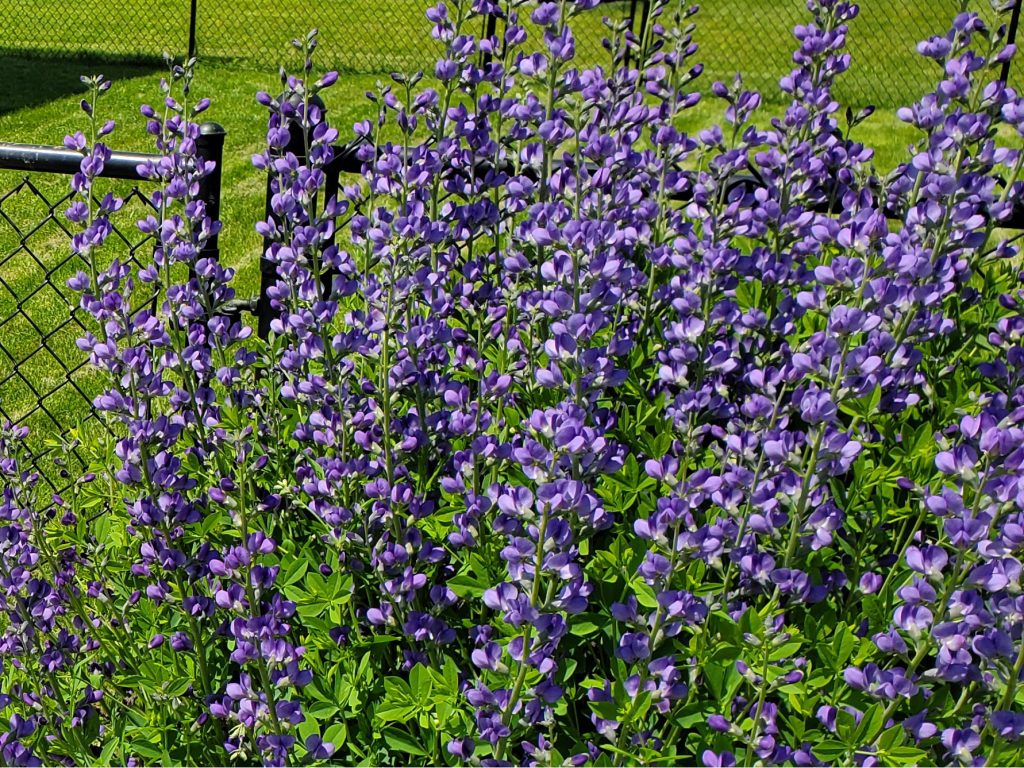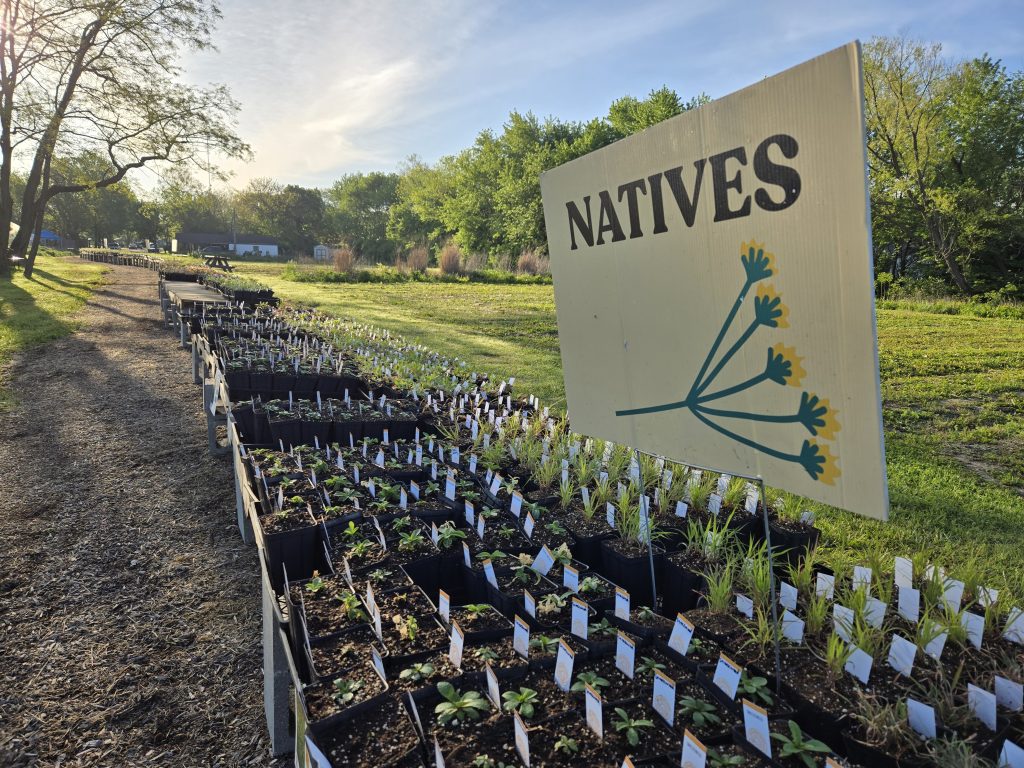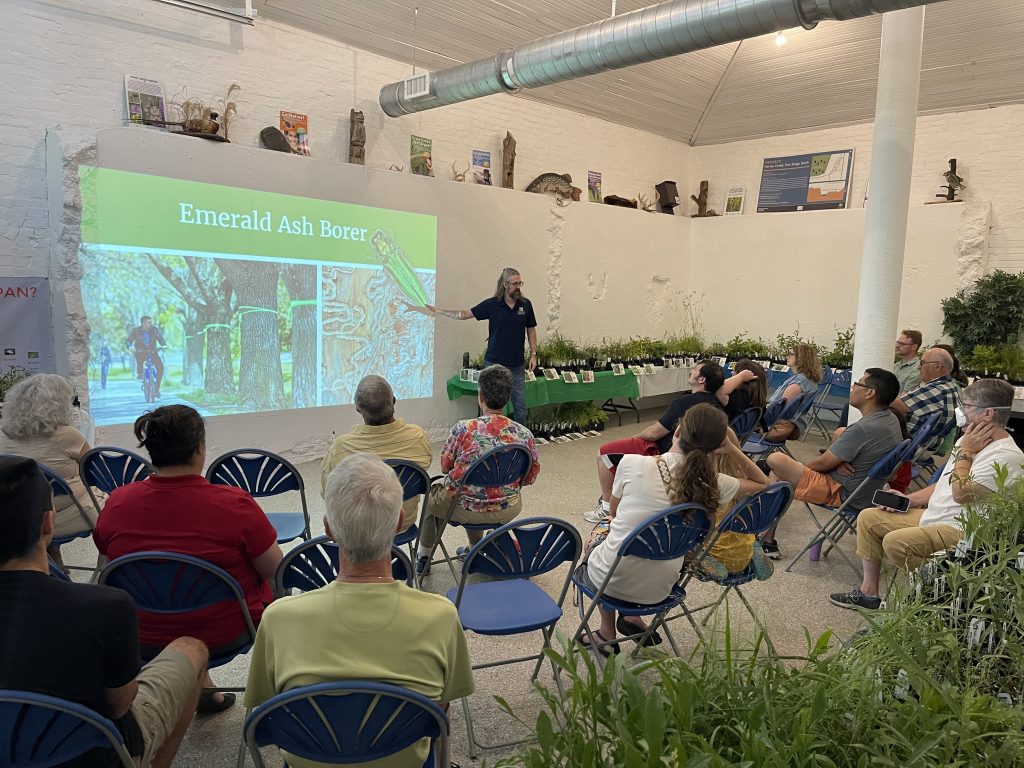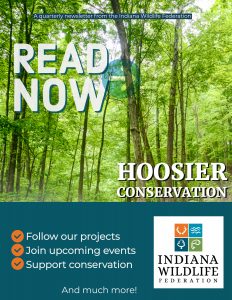Hoosier Conservation Newsletter – Spring 2025

Native Plant Sale
We have a new and exciting plant sale opportunity for Hoosiers! We have partnered with National Wildlife Federation and Garden For Wildlife® for a year now, offering a vast selection of high quality native plants in customizable kits. Whether you’re starting a brand new garden or supplementing an existing garden with a few of those hard-to-find species, we’ve got you covered. Check out the selection at the link below!
Indy Urban Acres Plant Sale

We tabled at the Indy Urban Acres annual plant sale for the last couple weeks to discuss the importance of going native with visitors. The plant sale still has another week left so get out there and buy your natives while supporting a wonderful Indy organization.
Even More Native Plants!

We will be partnering with the Greenwood Nature Center and Native Plants Unlimited to give you not only MORE native plants to buy, but a fun and educational presentation on why natives are so important to conservation.
Conservation Top Shot!
SAVE THE DATE ALERT! On August 21, one of our most exciting and popular events is back for our 4th Annual Conservation Top Shot. Sign up as an individual or sign up your workplace, friend group, or club for a friendly sporting clay competition.
This event will be open for registration on our website soon so stay tuned!
Letter from the ED
Now, more than ever, is the time to take a deep breath and renew our focus. IWF will be there every step of the way to keep you informed and fight for legislation that puts our natural spaces first. Executive Director Dan Boritt weighs in on the current state of affairs:
With so much going on in the world today it is easy to feel overwhelmed and in many cases it may be easier to check out rather than stay engaged. While this may be the easier route, I encourage each of you to continue standing up for wildlife and support organizations like the Indiana Wildlife Federation to advocate for common sense conservation. The list of threats is great, but with supporters like you I’m confident we can continue to garner wins for wildlife!
The Indiana legislature recently wrapped its 2025 session. While not all legislation was good, and the fiscal outlook is less than we’d hoped, we were able to record some major accomplishments. IWF, along with aligned conservation groups, was able to defeat chronic disease legislation which would have compromised our state’s herd of white-tailed deer. We helped champion legislation that will develop a framework for utilizing controlled burns on private property, a vital step to continue to manage our natural landscapes. Stronger rules around inspections of Concentrated Animal Feeding Operations were signed into law. In May over 4000 acres of land was permanently protected by Indiana as Busseron Creek Fish and Wildlife Area. All of these are small yet meaningful steps in helping to make Indiana better for wildlife, and I’m confident we will continue to have opportunities like this in the future.
On the federal front there seem to be a never ending list of potential threats. The Endangered Species Act, a hallmark of conservation law, is at risk of being greatly diminished. There is a movement to begin selling off public lands to raise revenue. Increased mining and timbering is likely on those remaining public lands, all putting our ability to utilize public lands as we like into jeopardy.
Yet amid this landscape of threats, we continue to produce wins. IWF, with the help of Senator Banks and Congressmen Mrvan, Yakym and Stutzman, were able to get a dozen federal employees reinstated after DOGE had terminated them. Thanks to the quick work by our Indiana delegation the critical work of applying lampricide in the Great Lakes is continuing uninterrupted. Just last week President Trump agreed to identify federal funds to move the Brandon Road Lock and Dam project forward. This project is vital to keeping invasive carp out of the Great Lakes, and after much concern that this decades long project would fall apart it appears to be back on track. Congresswoman Houchin continues to lead the Ohio River Congressional Caucus as it seeks to identify federal funding for restoration of the Ohio River Basin. Yes, many threats continue to threaten the wildlife and wild spaces we all love, but with your support we can continue to push forward.
With spring in full swing there is no better time to get outside and enjoy wildlife. Go listen to the song of a Swainson’s thrush as they migrate through Indiana. Enjoy the magic of ruby-throated hummingbirds as they dance among wildflowers. Go to our native plant sale, Garden for Wildlife, and turn your home into a Certified Wildlife Friendly Habitat. Get out on a river, either to paddle or take advantage of our world class smallmouth bass fishery. All of these actions can both recharge you and help wildlife to thrive in Indiana.
With love of wildlife –
– Dan Boritt, IWF EXECUTIVE DIRECTOR
Please Consider Donating
Everything IWF does is made possible by the generous donations of people like you. Our mission is to preserve the natural spaces, thriving ecosystems, and recreational opportunities you love. We believe it is central to our value as Americans to be good stewards of our land and everything living on it. Become a member or donate to our cause and let’s stand together for the future of our amazing outdoors.









